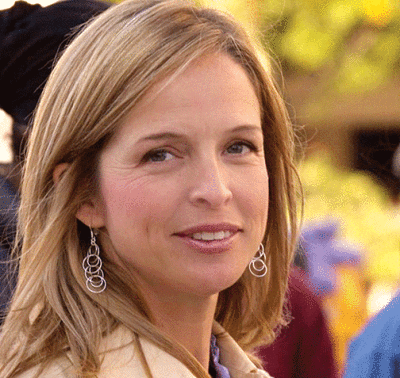This week, The Pennsylvania Gazette (the University of Pennsylvania’s magazine) featured a profile on Darlene Cavalier and we think it’s pretty awesome. It’s nice to have her whole Science Cheerleader / SciStarter / ECAST Network story in one place demonstrating the arc of Darlene’s scheme! Check out the full Gazette piece here. I’ve posted excerpts, below.

She began to question the public’s role in science. Should readers simply read science articles in magazines or should they do something more with the information? What do people do who love science but don’t have a degree in biology or engineering? Discover’s then-editor-in-chief, Marc Zabludoff, encouraged her to find out if Penn had a program where she could explore some of those thoughts. Sure enough, in a Penn course taught by Susan Lindee, the Janice and Julian Bers Professor of History and Sociology of Science, Cavalier discovered that while there were organizations of experts that advised congress on science policy, there were none comprised of regular citizens—even though some laypeople actually have considerable expertise about certain issues. (Farmers, for example, often know more about their own land and its relationship with weather patterns than anybody.) She studied a group called Citizen Scientists who did research in their free time (volunteer water-quality monitoring groups, for example) but did not collaborate with scientists working on similar projects. Along the way she discovered that the public’s attitude toward scientists (who “seem so mysterious and distant,” in Moreno’s words) was an obstacle to securing science funding.
SciStarter began when Cavalier was still at Penn, trying to keep track of the various citizen-scientist projects she had read about. She created an online project finder so that more people could find opportunities in their area, then asked partners such as Discover and the National Science Teachers Association to send their audiences there. Once she had a following, she recruited science researchers to add their own projects. Now, some eight years later, more than 650 projects are advertised and researchers are getting the help they need. And the public is getting the message that it is important for them to be involved.
But Cavalier knew it wasn’t enough to just get citizens involved in science projects; they also needed to relay their input to policy-makers, particularly elected officials. And so, along with such organizations as the Boston Museum of Science, Cavalier created a network called the Expert and Citizen Assessment of Science and Technology (ECAST) that has worked to find ways for laypeople to give congress their opinions of individual policies. Last year the network held a pilot program in which people in four locations around the country were invited to weigh in on policy related to biodiversity issues.
And last month, ECAST got its first big assignment: working with NASA on its Asteroid Initiative, an effort to land humans on asteroids by 2025. ECAST will run public conversations that give citizens an opportunity to weigh in on the mission, as well as create ways for ordinary people to participate in the research. The project is an ideal opportunity for ECAST, says Cavalier, something that is “beyond my wildest dreams.”
“She has a new idea every few seconds,” says Jonathan Moreno, the David & Lyn Silfen University Professor at Penn (not to mention professor of medical ethics and health policy and the history and sociology of science) and a senior fellow at the Washington-based Center for American Progress. “It’s just brilliant.”
Read more in the Penn Gazette!

